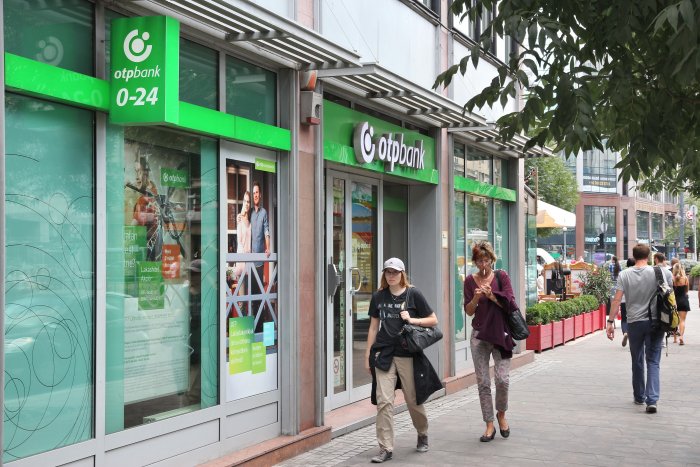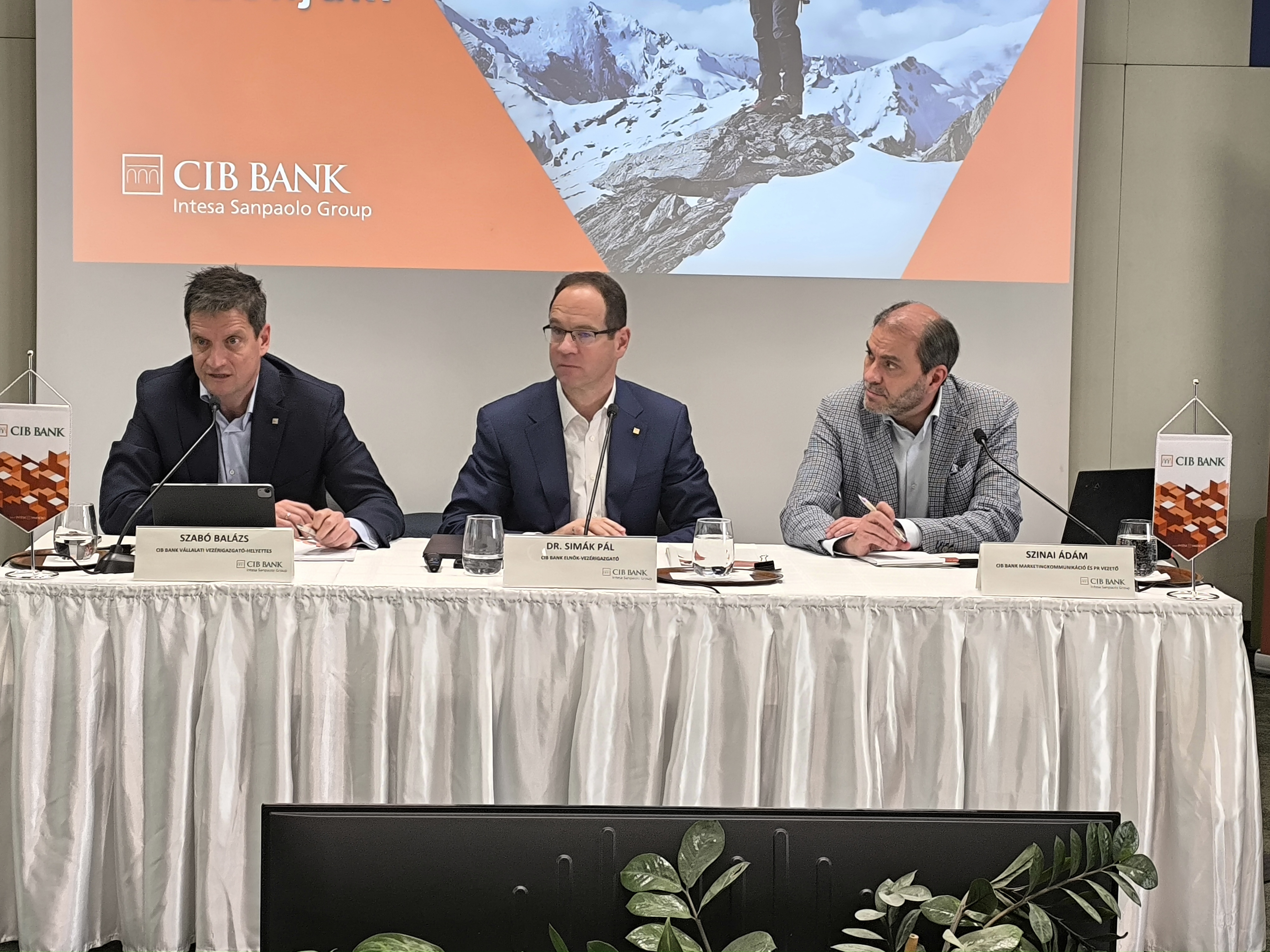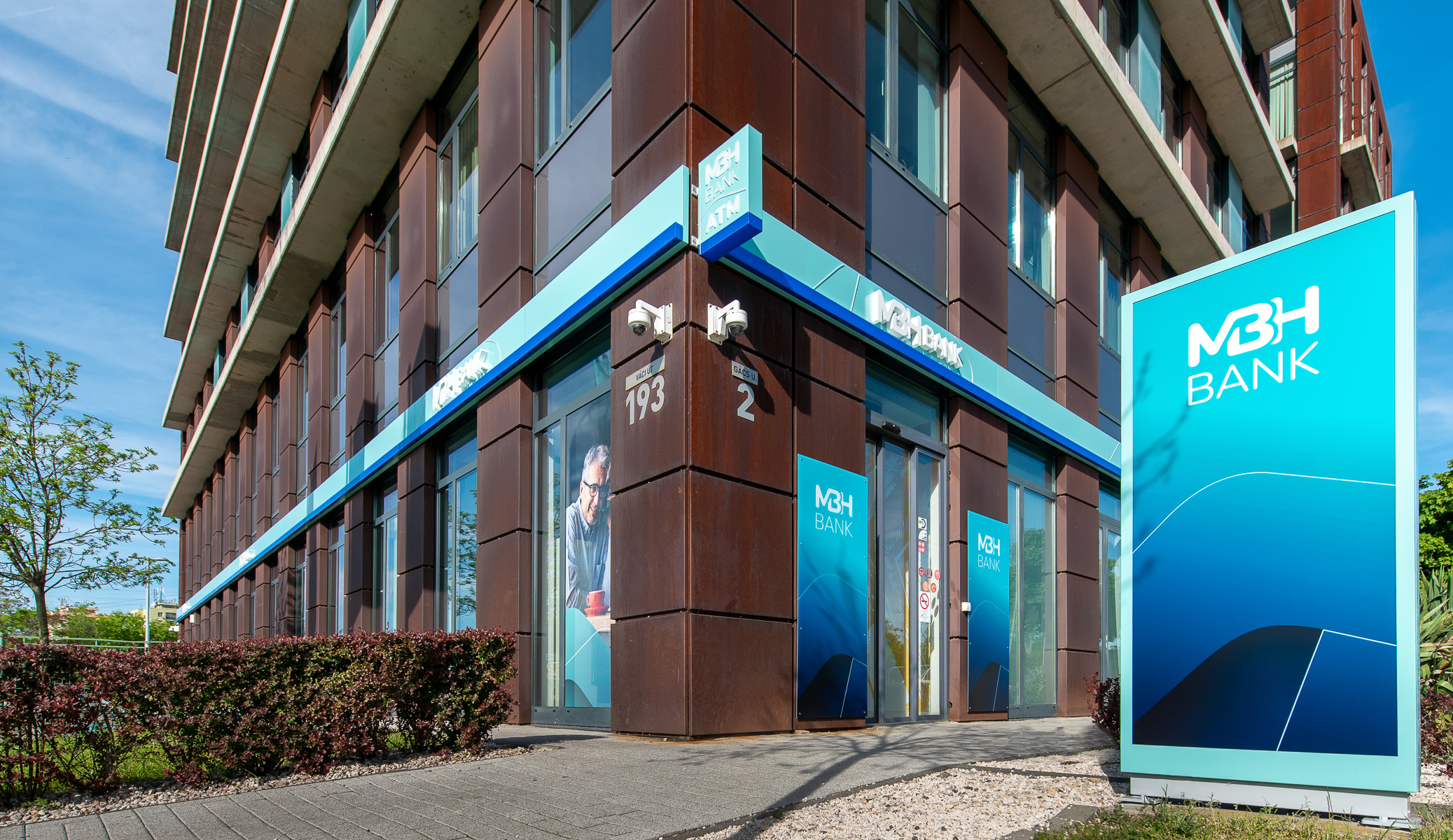One-offs Weigh on OTP Earnings

Tupungato/Shutterstock.com
Consolidated after-tax profit of OTP Bank, Hungary's biggest commercial lender, fell in the fourth quarter and for the full year as one-offs, including the impact of government measures and acquisitions, hit the bottom line, an earnings report released ahead of the opening bell on Friday shows.
Fourth-quarter after-tax profit fell 5% year-on-year to HUF 115.2 bln. One-offs subtracted about HUF 38 bln from earnings, including HUF 26.4 bln related to rate caps on mortgages and SME exposure, HUF 6 bln due to acquisitions and HUF 4.7 bln of goodwill impairment mainly at OTP's Russian and Serbian units.
For the full year, after-tax profit dropped 24% to HUF 347.1 bln. One-offs added up to around HUF 245 bln and included HUF 91.4 bln paid on a sectoral tax and a windfall profit tax, HUF 59.3 bln in goodwill and investment impairment, HUF 36.5 bln related to rate caps, HUF 35 bln in impairment on Russian government bonds and HUF 10.4 bln in additional payments to the National Deposit Insurance Fund (OBA) to cover the failure of Russian-owned Sberbank Magyarország.
Earnings per share came to HUF 1,288.
Net interest income increased 24% to HUF 1.094 trillion and net revenue from commissions and fees climbed 22% to HUF 397.1 bln.
Operating expenses rose 21% to HUF 788.1 bln and total risk costs jumped 146% to HUF 178.5 bln.
Return on equity fell 6 percentage points to 11%. Return on assets, after adjustments, edged down 0.1 percentage point to 1.9%.
Foreign Units Generate Around Half of Profit
After-tax profit of OTP's foreign businesses fell 21% to HUF 180 bln. Excluding the impact of one-offs, their profits rose 13% to HUF 288.7 bln, accounting for 49% of adjusted earnings.
Adjusted after-tax profit of the Bulgarian business, DSK Group, rose 56% to HUF 119.9 bln.
Adjusted profit of the Russian unit increased 13% to HUF 42.5 bln, while OTP booked a HUF 15.9 bln loss at the business in Ukraine. OTP said its management applies a "going concern" approach to both businesses, but are still considering "all strategic options" in Russia, while acknowledging a Russian presidential decree prohibiting the sale of foreign-owned banks.
Russian assets on OTP's consolidated balance sheet accounted for 3.1% of the total at the end of 2022. The impact of deconsolidation and write-down of intragroup exposure under an "unexpected and extremely negative scenario" would cut OTP's CET1 ratio by 71 bp.
Ukrainian assets made up 3.2% of the balance sheet total.
Adjusted after-tax profit of OTP's core business in Hungary increased 19% to HUF 253.2 bln.
OTP Flags HUF 300-per-share Dividend Proposal
OTP had total assets of HUF 32.804 tln at the end of December, up 19% from 12 months earlier. Gross stock of client loans rose 12% to HUF 19.644 tln and client deposits increased 14% to HUF 25.189 tln.
The ratio of NPLs over 90 days past due stood at 3.1%.
In guidance in the report, OTP said FX-adjusted organic performing loan growth "may not exceed 5%" in 2023 amid the high-interest rate environment and the expected slowdown of GDP growth in most of the group's markets.
Management guidance involves "higher than usual uncertainty" because of the direct and indirect impacts of the war in Ukraine, the performance of the Hungarian economy, and related government and central bank measures, it added.
Management flagged an improvement in net interest income at the Hungarian business, assuming inflation falls under 10% by end-2023 but noted the lender will pay HUF 28 bln on the bank levy and HUF 69 bln for the windfall profit tax in 2023.
Management acknowledged that the acquisition of Slovenia's Nova KBM, completed in February, and the pending acquisition of Ipoteka Bank in Uzbekistan, which is expected to close in Q2, could "substantially contribute" to after-tax profit in 2023.
OTP said its board is expected to propose payment of an HUF 84 bln dividend on last year's earnings, equivalent to HUF 300 per share.
OTP Seeks Acquisition Targets Mainly in Region
At a press conference after the report was published, deputy CEO László Bencsik said OTP's foreign units compensated "in large part" for the impact of the war and measures implemented by Hungary's government on the group. He noted that lending stock in the domestic business rose 15%, while the corporate loan book grew by 33%, supported by government credit programs.
OTP signed contracts for HUF 593 bln of loans in the framework of the Szechenyi Card Program, a subsidized credit scheme for businesses, giving it 32% market share in the segment, Bencsik said.
He said the government and central bank's goal of bringing inflation under 10% in the second half of the year is "realistic" and is expected to result in a "rapid decline" in the interest rate environment at the same time.
He said a central bank decision to raise lenders' mandatory reserve threshold and pay interest only on part of those reserves would result in a HUF 50 bln loss for OTP.
Fielding questions, Bencsik said banks are incapable of competing with inflation-linked retail government securities offered by the Government Debt Management Agency (ÁKK) and noted a narrowing market for deposits.
OTP is looking for new acquisition targets mainly in the region, especially in countries in which it already has a presence, he added.
SUPPORT THE BUDAPEST BUSINESS JOURNAL
Producing journalism that is worthy of the name is a costly business. For 27 years, the publishers, editors and reporters of the Budapest Business Journal have striven to bring you business news that works, information that you can trust, that is factual, accurate and presented without fear or favor.
Newspaper organizations across the globe have struggled to find a business model that allows them to continue to excel, without compromising their ability to perform. Most recently, some have experimented with the idea of involving their most important stakeholders, their readers.
We would like to offer that same opportunity to our readers. We would like to invite you to help us deliver the quality business journalism you require. Hit our Support the BBJ button and you can choose the how much and how often you send us your contributions.









